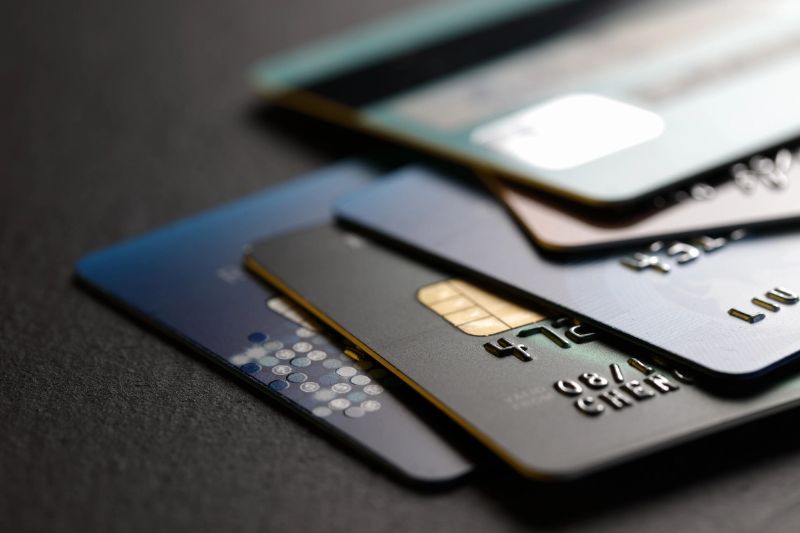Being a savings-focused country, cash has always been king in India. But, thanks to technological advancements, India has quickly grown accustomed to cashless modes of payment like debit cards, UPI and credit cards.
Adoption of technology coupled with growing lifestyle aspirations has also led to an unprecedented rise in the demand for credit, particularly credit cards in recent times. These cards are famous for attractive credit card offers and some really cool features & benefits. It’s also a convenient option, you can apply for a credit card online within a couple of minutes.
The Growth of Credit Cards
Recent data from RBI notes that credit card swipes jumped by 20% in the past year, while debit cards swipes fell by 31%. This comes as no surprise as UPI transactions have grown rapidly and have pretty much replaced debit cards. In 2022, UPI merchant transactions stood at 536 crores against last year’s 254 crores.
Despite increasing resistance towards card payments, credit cards have still managed to carve out a neat little niche corner for itself in the market.
Not convinced? Let’s look at the numbers – the number of active credit cards in the country stands at around 8.5 crores, last year it was 7.5 crores; three years ago, the number was less than 5 crores!
The quantum of money spent on credit card payments is also considerably higher than what is typically spent on debit card and UPI payments. The value of transactions on credit cards was a whopping ₹1.3 Lakh Crores against ₹53,000 Crores on debit cards. This is because people generally make big-ticket purchases and travel expenditure on their credit cards, thanks to credit card offers, rewards, etc.
This gives financial institutions a lot of motivation to push credit cards, particularly in Tier-1 cities as consumer spending continues to grow in these cities. And, that’s exactly what they’ve been doing – there are around 7.7 crore credit card users in the country! And this is after RBI’s directives to discontinue inactive credit cards. It’s likely, though, that the total number of credit card users in the country is lower than this figure as many people carry multiple credit cards.
This number is not that significant, given India’s working population (over 90 crores). But, it’s important to note that India is still a largely unbanked nation. A report by the World Bank notes that 22.9 crores Indians are still unbanked, making credit cards very, very inaccessible for them.
Access to Credit Cards and Why it Matters
Even among banked Indians, credit cards can be somewhat of an elusive product. This is because of the high barrier to entry. Though you can easily apply for a credit card online in no time at all, financiers have certain eligibility requirements that may be difficult to meet for some. This will typically include a good credit score or credit history and proof of regular source of income.
Given that a large proportion of the Indian population works in the unorganised sector, proof of regular income can be almost impossible to attain. This is a cause for concern for both borrowers and lenders.
Credit Card Repayments
While we’re on the topic of credit cards, it’s impossible to not address the elephant in the room – credit card repayments! What a lot of us fail to understand about credit cards is that it is essentially a type of loan and can accrue interest. It has now become easier than ever to overspend with a credit card, all thanks to never-ending sales and enticing reward points.
Data points from RBI confirms this – in March 2022, credit card outstanding dues stood at ₹1.4 Lakh Crores. In March 2023, that number jumped to ₹1.9 Lakh Crores – a jump of 35% in a single year!
It doesn’t help that the way a credit card works makes it very easy to accrue debt. Unlike with most other lines of credit, you can get away with making a repayment to the tune of what is known as ‘Minimum Amount Due.’
This amount is usually a small percentage (generally 5%) of your total repayment. By making this payment, you can effectively escape the legal consequences and scrutiny of your credit card provider. However, your unpaid repayment amount will continue to accrue interest. The interest rates on credit card debts can be as high as 45% per annum! Not to mention, making minimum payments can also have an adverse impact on your credit score.
Credit cards can be absolutely game changing! They can help you make the most of your money with deals, rewards, lounge access, free upgrades and much more. But, like with anything else in the world, there is a flip side to these advantages. They can also lead to overspending and bad financial habits that can have long-term effects on your financial well-being. So, it’s important to exercise caution and make wise financial decisions!
Content writer with years of expertise in copywriting, freelancing, online marketing, and SEO

